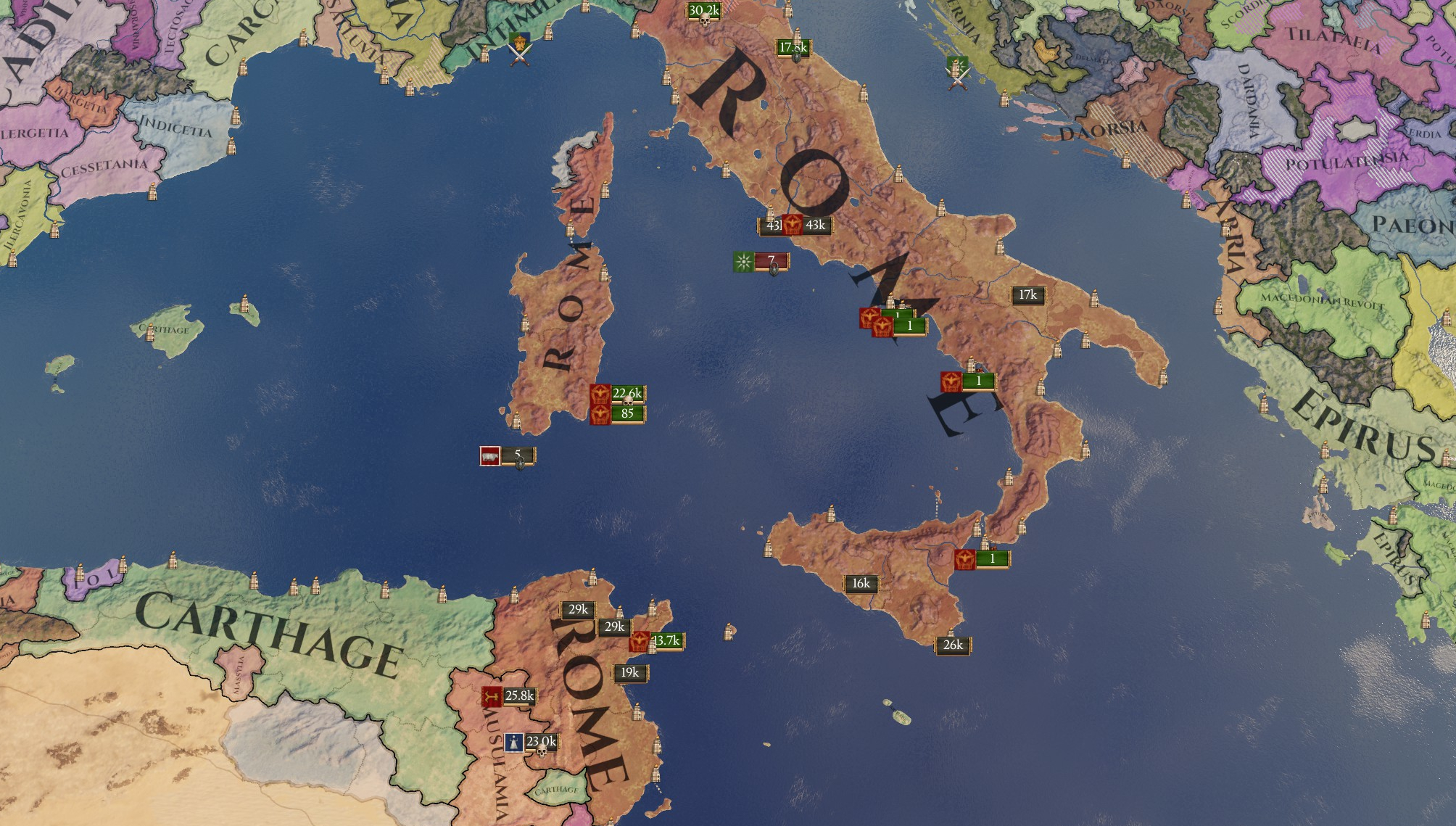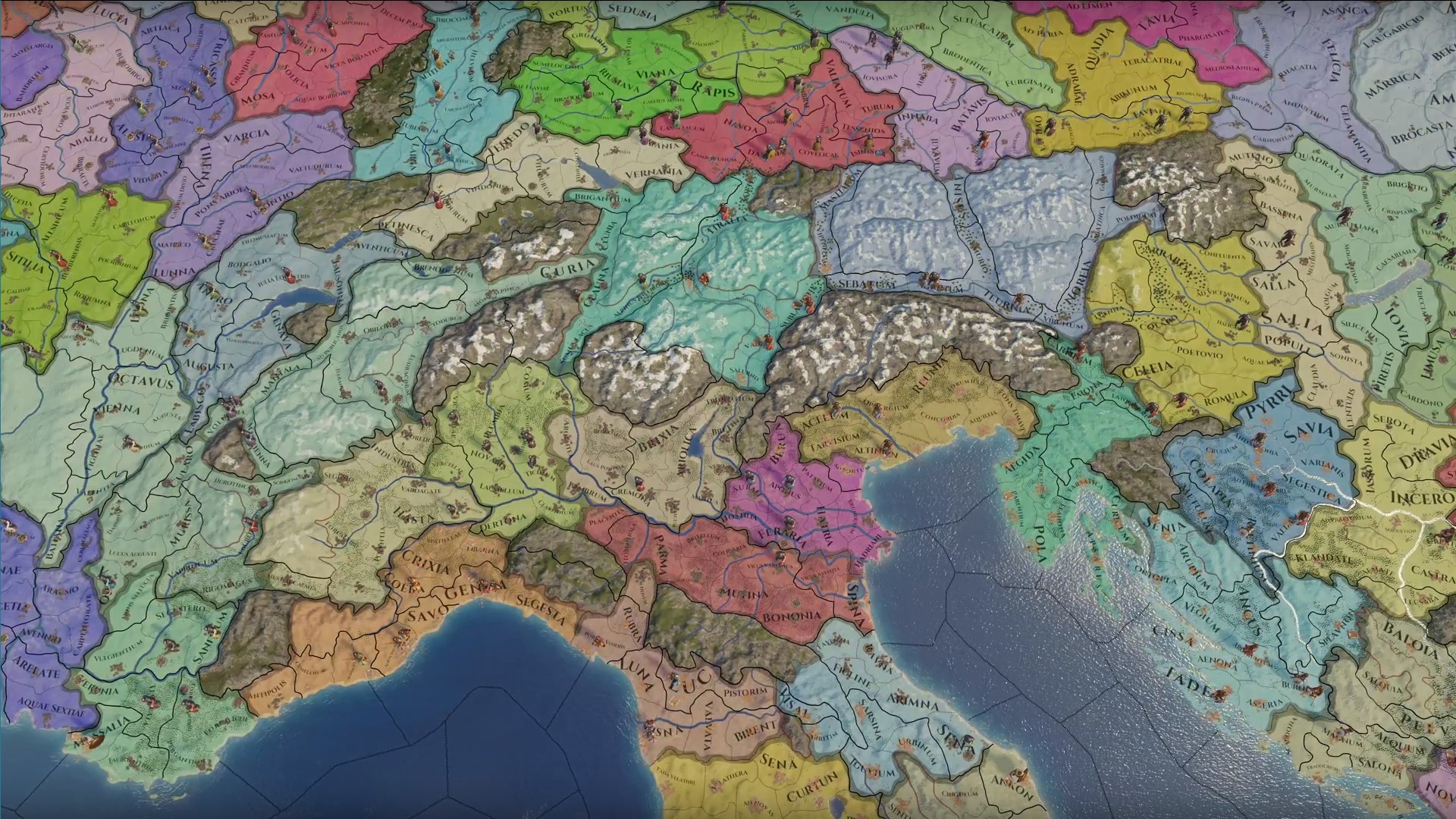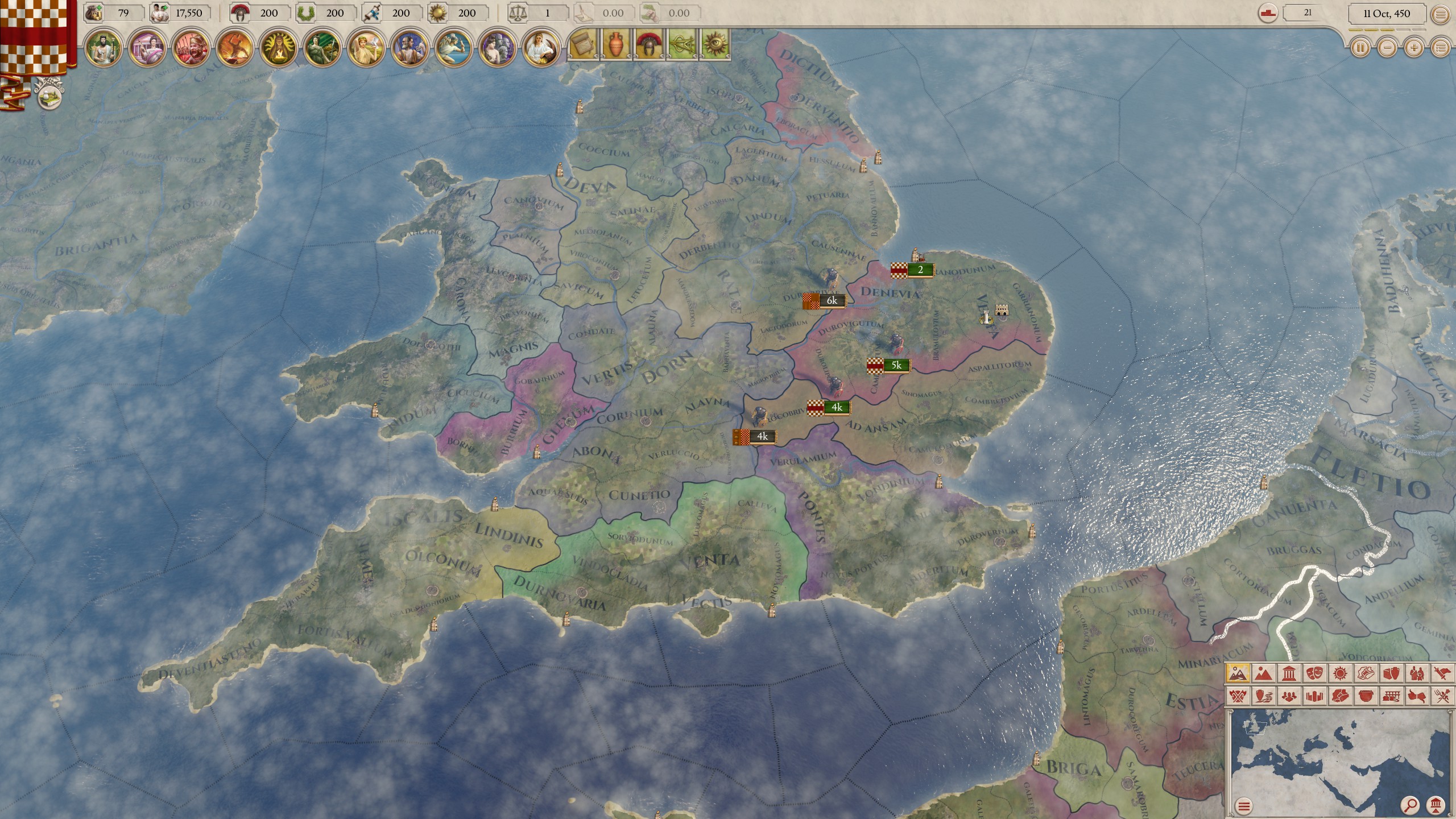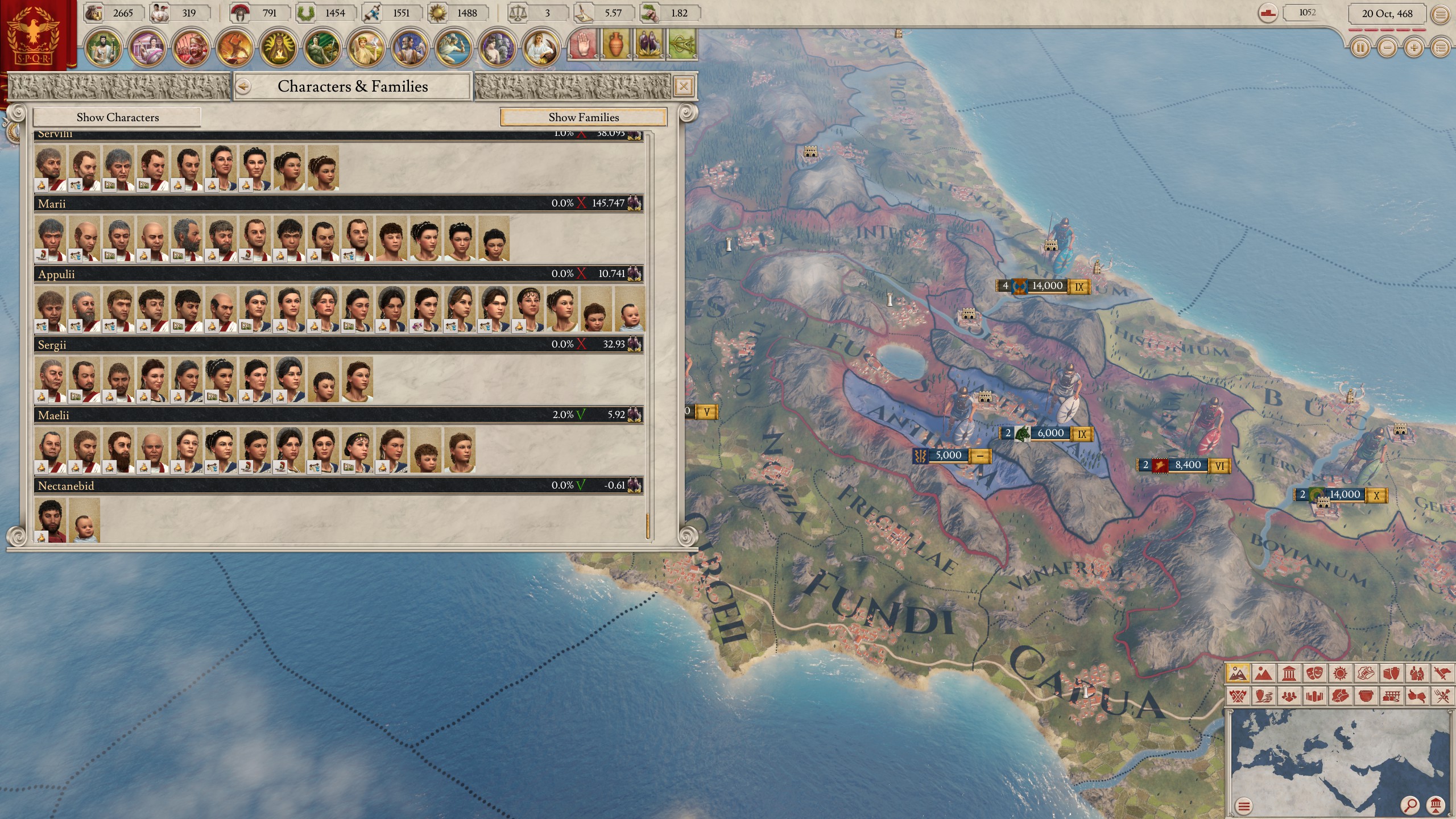How Paradox is rebuilding Imperator: Rome
But it will take more than a day.

In April, Paradox released its latest grand strategy epic, Imperator: Rome, giving armchair conquerors a massive map of antiquity to paint in their colour. Reviews were largely positive—I gave it 92 and think it's one of the studio's strongest games at launch—but the sentiment hasn't been shared by the majority of players. On Steam, it's the only Paradox game with a negative rating.
"It's been completely different from what we've experienced before," says creative director Johan Andersson. After a string of successful launches and a build-up that involved countless dense developer diaries and streams, he was expecting players to take to it just like they did his last game, Europa Universalis 4. But it didn't happen.
"The post-launch was not all that fun for me personally," he says. "There were multiple times during that month where I was like, 'Fuck this shit, I'm quitting the industry.' It was like, 'I don't know how to make games anymore, I should just retire.'"

Andersson feels like he was honest about what Imperator was going to be, and that a lot of user reviews and criticism has been focused on what it isn't. DLC also crops up a lot in complaints, though Paradox is yet to announce any. Some players are also coming to Imperator from games like Crusader Kings 2, which has grown gargantuan over the last seven years. In comparison, Imperator seems sparse.
That doesn't really account for the amount of negative feedback, however, and it would be unfair to characterise all or even most Imperator user reviews and forum discussions as misunderstandings. Several issues have been echoed pretty consistently, including Monarch Power, nicknamed 'mana', and being able to make instant, direct actions instead of subtly influencing the world. These are among several things being completely redesigned by Paradox.
Last month, the studio revealed its one year plan for Imperator, promising significant changes and overhauled systems. The first step, the Pompey update, is already in beta and will launch on June 26, reworking navies and pirates—which have almost nothing to do at the moment—changing civil wars, finally adding a ledger to keep track of everything and introducing more ways to interact with your government.

The changes are broad, but small in comparison with what's coming next. Spending Monarch Power is one of the main ways you interact with the game, turning all your political influence into a single, simple resource. In 1.2, it will be completely flung out and replaced.
The biggest gaming news, reviews and hardware deals
Keep up to date with the most important stories and the best deals, as picked by the PC Gamer team.
"[Mana] was one of the first features we talked about, and it worked in the game and is a nice, balanced system," Andersson says. "I don't understand why people want to buy a game that has major core features that they don't like. Well, if the customers want something different, we'll just have to change the game to do that."
Despite his disappointment, he believes that the result is a far better system, and one that represents a game-wide shift in how you'll play. Instead of mana, you'll generate political influence based on how loyal the movers and shakers in your nation are. If your nation is full of treacherous nobles that hate your guts, you might find your hands tied and your influence curtailed. You'll have to work harder to keep people happy and make an extra effort to avoid civil war, and what influence you do have will be less direct.

"What we're doing is basically changing the abstract currencies to logical currencies," Andersson says. And these currencies or resources, which still include things like gold and manpower, will be used to "nudge things over time."
This shift away from abstract systems extends to your population, too. Another complaint was how migration and converting pops was as simple and uninvolved as hitting a button and spending a resource, but eventually it's going to happen more organically. The goal is to make it feel more like a simulation and that you've got the powers of a ruler rather than a god.
We'll see these changes in September, when the Cicero update appears, and right now it's being tested internally. Andersson says the new powers and pop mechanics are already making the game feel more balanced, with more strategic choices. The feedback from players has been hard to hear, but it's making the game better.

"I wish I'd thought about those things earlier," Andersson says. "I think I took the wrong lessons for EU4." He thought abstract resources resulted in a better, balanced game, but people have taken such a strong dislike to mana that he's had to rethink things. He still believes that Imperator is a big step up from what Europa Universalis 4 was like at launch, however, but that doesn't matter to him if the players don't feel the same way.
"I want it to be a game that has a large community playing it and enjoying it. I don't really care about exactly what features are in it, because ideas are cheap, execution is everything."
The Pompey update beta is available now for all GOG and Steam users.

Fraser is the UK online editor and has actually met The Internet in person. With over a decade of experience, he's been around the block a few times, serving as a freelancer, news editor and prolific reviewer. Strategy games have been a 30-year-long obsession, from tiny RTSs to sprawling political sims, and he never turns down the chance to rave about Total War or Crusader Kings. He's also been known to set up shop in the latest MMO and likes to wind down with an endlessly deep, systemic RPG. These days, when he's not editing, he can usually be found writing features that are 1,000 words too long or talking about his dog.

